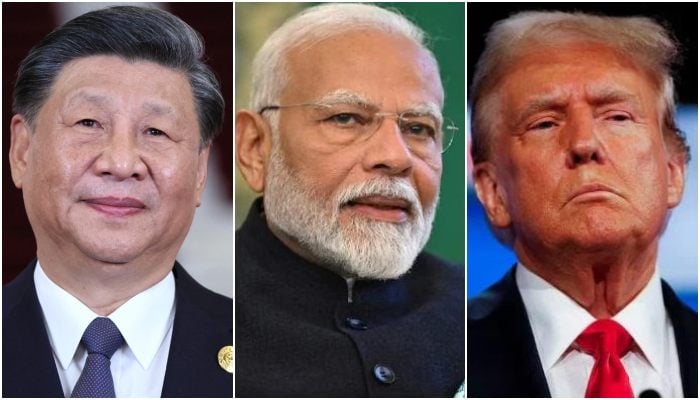
ISLAMABAD: Indian Prime Minister Narendra Modi’s high-profile bid to court major world powers has stumbled, with his overtures to Chinese President Xi Jinping and US President Donald Trump ending in political embarrassment and raising fresh doubts over New Delhi’s global influence, The New York Times reported.
Modi’s first overture was to Beijing. In 2014, he welcomed Xi with a red-carpet reception in Gujarat, sharing a riverfront swing in a carefully staged display of camaraderie. But even as the two leaders conversed, Chinese troops clashed with Indian forces along the disputed border — the first in a series of confrontations that would see India keep tens of thousands of troops stationed in the Himalayas for years.
Several years later, Modi turned to Washington in search of a strategic breakthrough. Viewing the US as a counterweight to China, he invested heavily in the relationship, even breaking protocol to campaign for Trump’s re-election at a packed rally in Houston. The Biden administration maintained cordial ties despite the partisan move, with Modi memorably telling a joint session of Congress last year that “AI” stood for “America and India.”
That goodwill evaporated in Trump’s second term. The US president slapped India with a 50% tariff, calling its economy “dead” and citing New Delhi’s purchases of Russian oil.
He also angered Indians by giving Pakistan equal footing in mediating a ceasefire, a claim which New Delhi publicly disputed to preserve Modi’s strongman image, following this year’s cross-border hostilities after the Pahalgam attack.
The diplomatic bruising has pushed India toward a familiar doctrine of “strategic autonomy” — avoiding deep alliances and relying instead on a patchwork of contradictory partnerships. Modi has reopened channels with Beijing despite unresolved border disputes and China’s backing of Pakistan during the May military escalation.
At the same time, he has deepened engagement with Moscow, speaking with President Vladimir Putin to reaffirm the “India-Russia Special and Privileged Strategic Partnership” and preparing to host him later this year.
Still, experts warn that the rebuffs have dented India’s ambitions. Former Indian ambassador Nirupama Rao said Trump’s tariff move had “upended the strategic logic of a very consequential partnership” with the US, while author and former adviser to PM Manmohan Singh, Sanjaya Baru, noted that the personal styles of both Trump and Modi had turned a bilateral relationship between nations into a volatile relation between two egos.
Modi, for his part, has kept public criticism of Washington muted, framing his defiance as a defence of “farmers, fishermen and dairy farmers” and signalling he is willing to pay a “heavy price” politically.







